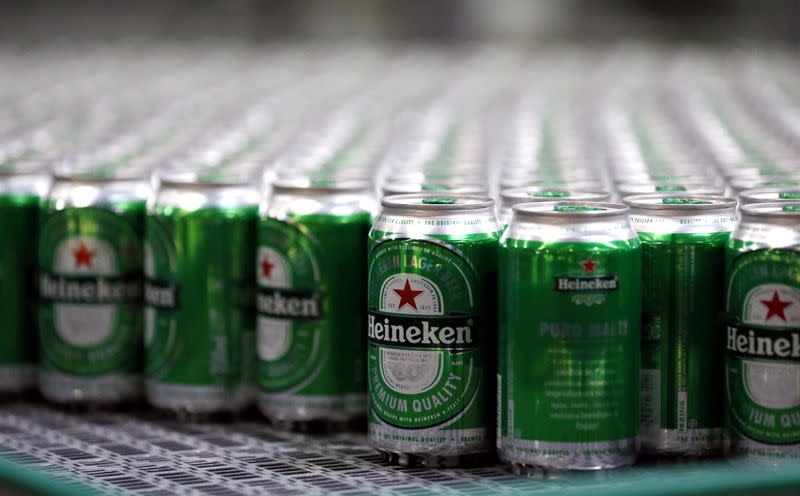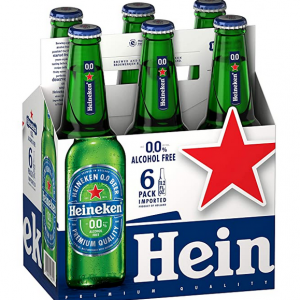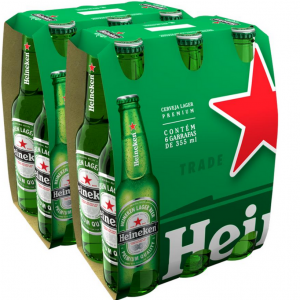Heineken beer suppliers
Looking at Heineken beer suppliers one name pops up which is DKT Holdings ApS. A Danish trade company that specializes in the redistribution of alcoholic and non-alcoholic beverages. They also sell baby formulas, confectionery products like hard candy and chocolate. The company is located in Copenhagen but exports to the whole world and at very cheap rates.
Wholesale suppliers, distributors of Heineken beer
Wholesale suppliers, distributors of Heineken beer a pale yellow lager beer of premium quality. The company DKT Holdings ApS has been in the redistribution business for a very long time. During this time we have made friends and acquired licenses which gave us the power to buy cheap and also resell at a price that is lower than that of our competitors. If you have been looking at Heineken beer suppliers list and wondering who to contact, then look no more.
Simply contact DKT Holdings ApS and buy Heineken beer wholesale.
History of Heineken beer

Founded in 1864, Heineken International is a Dutch brewery and distiller best known for its Heineken Pilsner beer. The company owns hundreds of local and international beer brands, including Amstel, Tiger, Murphy's Stout, Red Stripe and Birra Moretti.
Heineken has a history of innovation in beer production—a result of the pursuit to create a better tasting experience for consumers. In 1886 Jan Heine unveiled his new formula for draught pilsner beer at the International Fair in Antwerp. Heineken's innovations included the first use of glass (instead of barrels) to transport beer, the introduction of bottle caps, the first bottling plant and pasteurisation. Heineken became one of the first beers to introduce filtered beer.
At its peak during the Second World War, Heineken made over 100 million bottles a year at their brewery in Amsterdam. The company decided not to re-start production during World War II because their tenants suffered heavy losses. After war ended, Heineken resumed production with some production facilities intact and others completely destroyed. The company had more than 1 million hectolitres per year on average after 1946, but had more than doubled that amount by 1973. Production peaked at more than 3.8 million hectolitres in 1987, before declining to just over 400,000 hectolitres by 1995.
Heineken's market share reached 50% in the UK in 1969 and remained the best-selling lager until 1974. Heineken was bought by British multinational Diageo in 1990, which took it private again after a 1994 hostile takeover bid. On October 16, 2008 Heineken merged with AmBev—maker of Budweiser—to form InBev Nederland Holdings BV (known as InBev), which is now the second largest global brewer by volume. With all this success, the company needs Heineken beer suppliers though to be able to reach every part of the world.
Foundation and early years
The company was founded in 1864 by Gerard Adriaan Heineken, a former brewer who had five sons, one of whom is remembered today as the founder of the Heineken bottle. The original brewery building is still there on the Jodenbreestraat in Amsterdam, but now houses an office block. The last surviving member of the family Eugene Heineken sold his shares to his cousin Anton de Puechedou, who renamed it 'Heineken NV', which became known as 'Heinekens' outside the Netherlands. The company was taken over by Carlsberg in 1926 and eventually became Carlsberg-Heineken International (CHI) in 1935.
Heineken had grown to be the second-largest beer producer in the world by the end of Prohibition, and it entered the U.S. market with a pavilion at the 1933 World's Fair in Chicago. In the United States, however, it is best known for its TV commercial "I would drink to that!".
In 1947 CHI bought Amsterdam's best-known brewery, De Pijp and became one of the Heineken beer suppliers. It was not successful and was closed in 1949, with a fire in 1952 bringing a premature end to its brewing activities in Amsterdam. Heineken continues to operate a brewery at this location today for producing its original lager brand 'Zomer'.
International expansion
To expand Internationally, the Heineken company needed redistributors otherwise known as Heineken beer suppliers. Heineken expanded into the United States in 1951 under the name National Brewing Company. It bought all of Plank Road Brewery's brands at the time, including Union Beer, National Premium, Old Dominion Beer and Old Dominion Ale. It also bought Danbury Brewing Company in Danbury, Connecticut.
Heineken entered the Russian beer market in 1992 by acquiring local brewer Baltika-Bierbrouwerij NV. The Baltika brand is now exclusively brewed by Baltika Breweries' subsidiary Baltika Breweries Ltd., with brewing facilities located in the Lithuanian capital of Vilnius. The company has also expanded into other Baltic countries.
Heineken entered the Japanese market in 1975, when it negotiated with Sapporo Breweries to buy a 30% stake in its brewery. It then bought out Sapporo's remaining shares in 1986.
Heineken entered the Middle East by acquiring majority control of United Middle East Beverages (UMeB) for $125 million (equivalent to US$206 million as of 2010) in a bid to enter the traditional beer market, There it launched 'Heineken Arabica', a Heineken brewed using local malt and hops for Arab drinkers.
In 2016, Heineken sold the rights to distribute Heineken products in Myanmar to Myanmar Brewery Co Ltd.
Headquarters and production facilities
Heineken has regional offices in the Netherlands, Belgium, Indonesia, Malaysia, Japan and Thailand. The company also has a representative office in London as well as offices in Shanghai and Sydney. In addition to brewing its core brands at facilities around the world, Heineken also owns a bottling plant in Seoul. It also supplies beers outside of these facilities under contract with other breweries. The company's East Coast brewery was formerly known as Amsterdam Brewing Company before being acquired by Carlsberg-Heineken International (CHI). When Carlsberg began to develop the East Coast brewery, it called it Heineken USA Breweries.
During the 2008 takeover by InBev, CHI and its subsidiary Nederlandse Brouwerijen BV (NBbv) were renamed Heineken Nederland and Heineken Belgium respectively. As a consequence of this takeover, brewing operations in Amsterdam and Zoeterwoude were discontinued while operations in Utrecht and Zoeterwoude will continue unchanged.
Heineken products are brewed under license in over 70 countries worldwide. In the past, the company brewed its products under a number of different brands, but has since 1994 been known as Heineken International.
In November 2007 Heineken announced that it intended to open up its production facilities in China, Malaysia and Indonesia to other breweries, including some which manufacture locally brewed beers. It had already received permission from Chinese regulators to open up its brewery in Shanghai to foreign brewers.[1] This caused concerns locally over the possible flood of cheaper international beers into the local market. Despite these concerns some brewers (including Carlsberg and Kirin) were allowed approval for licences while some breweries (such as Tsingtao Brewery Co.) were denied approval on similar grounds.
Heineken has plans for further international expansion, including opening up facilities in Africa and South America. It has previously briefly had operations in Argentina with its 'Heineken América' brand. The company's largest brewery is located in São Paulo, Brazil where it brews Heineken Brazilian Lager (a version of the Heineken lager, which is brewed locally), Lamborghini Añejo and Heineken Export.
On September 11, 2007 Coca-Cola announced that it had agreed to buy 25% of the ownership in NB Beer N.V., the Belgium subsidiary of the Dutch brewer NV Heineken NV for about $1.68 billion via its Heineken International subsidiary. The plan to acquire the additional shares will be subject to approval from antitrust regulators and other conditions. Coca-Cola and Heineken will be equal shareholders in NB Beer N.V. and its subsidiary NB Bev, with each owning 25%. Coca-COLA will continue to operate the Heineken brands in Belgium.[2]
In 2013, it was announced that Heineken had taken a 51% stake in Namibia Breweries (NamBrew), the local beer maker of Namibian Breweries, as well as taking over responsibility for marketing and distribution of NamBrew's products.


